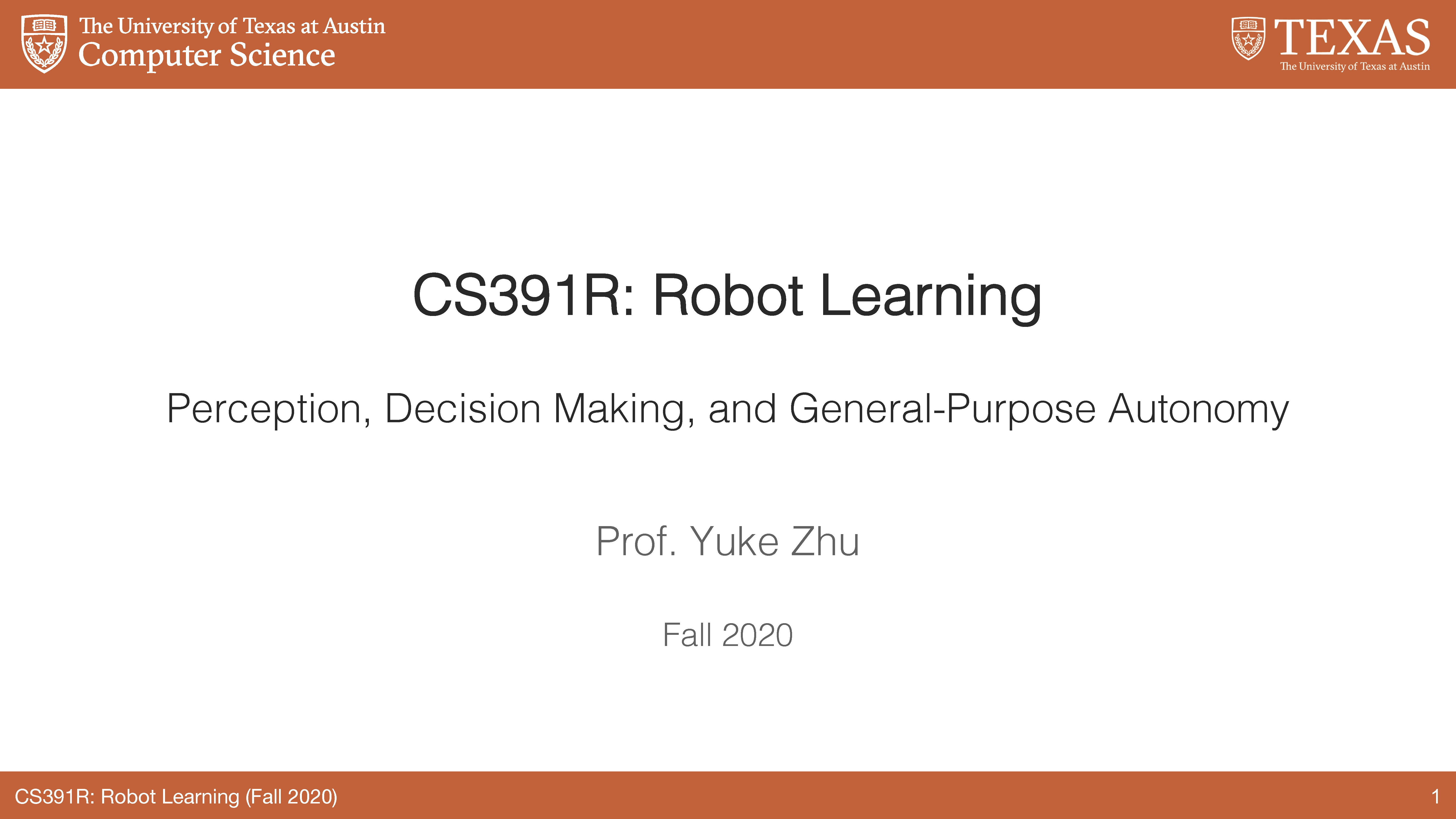CS391R: Robot Learning
机器人和自动系统在现代经济中扮演着重要的角色。定制机器人极大地提高了生产率、操作安全性和产品质量。然而,这些机器人通常是在良好控制的环境中为特定任务编程,而不能在现实世界中执行不同的任务。我们怎样才能把机器人从受约束的环境中带到我们的日常生活中,作为我们的伴侣和助手来帮助我们完成各种现实生活中的任务?它要求一种新型的通用自主机器人,机器人通过感知来理解世界,并据此做出明智的决策。本课程研究了作为智能代理的自主机器人的现代机器学习和人工智能算法。它涵盖了围绕以下原则和技术的高级主题:1) 机器人如何从原始的感官数据感知非结构化的环境,2)机器人如何根据其感知做出决策,3)机器人如何在物理世界中主动地、持续地学习和适应。
https://www.cs.utexas.edu/~yukez/cs391r_fall2020/index.html
课程目录:
- Introduction: Towards General-Purpose Robot Autonomy
- Overview of Robot Perception
- Object Detection
- 3D Data Processing
- Representation Learning I: Priors
- Representation Learning II: Motions
- Multimodal Perception
- Recursive State Estimation
- Pose Estimation
- Visual Tracking
- Active Perception
- Overview of Robot Decision Making
- Model-free Reinforcement Learning
- Model-based Reinforcement Learning
- Imitation as Supervised Learning
- Inverse Reinforcement Learning
- Adversarial Imitation Learning
- Learning to Learn I: Meta-Learning
- Learning to Learn II: Lifelong Learning
- Compositionality II: Task and Motion
- Causal Reasoning
- Simulation-Reality Gap
- Data-driven Grasping
- Building Robotic Systems
- Conclusion: Open Questions in Robot Learning
成为VIP会员查看完整内容
相关内容
专知会员服务
41+阅读 · 2020年4月11日
专知会员服务
104+阅读 · 2019年10月22日
Arxiv
6+阅读 · 2018年1月21日



